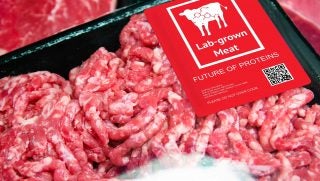There’s no question that hands-on experience is the best approach to education. It helps students develop skills, builds confidence, and encourages cognitive development. Internships with businesses and participation in leadership organizations can further propel young people to better outcomes.
Illinois is making that participation easier for students. While at the Illinois State Fair in August, Illinois Gov. JB Pritzker signed into law House Bill 3814. The law amends the state’s school code relating to student attendance. Starting in January 2024, students participating in work-based experiences for 4-H and FFA programs won’t be penalized for missing school. Instead, those activities will count toward school attendance.
This legislation is a bold step. It encourages students to take advantage of real world experience in agriculture, business, and science. It also encourages students to participate in these programs, especially for students who struggle with “book learning.” And as Pritzker noted, it supports Illinois’ biggest industry: agriculture.

So what exactly do students get from these organizations?
Let’s start with 4-H, an organization most people encounter at county fairs and animal competition. But it’s really so much more! 4-H is a youth development program that has been around for over 100 years. It’s delivered by a community of more than 100 public universities across the nation. 4-H offers a variety of programs that teach kids life skills, such as leadership, decision-making, problem-solving, and teamwork. It also teaches kids about agriculture, STEM, health, and civic engagement. It’s not just about farming.
FFA, or Future Farmers of America, is a national youth organization that teaches students about agriculture and prepares them for careers in the field. FFA members learn about animal science, crop production, horticulture, and other agricultural topics. They also participate in leadership development programs (a very important aspect!), community service projects, and competitions. It’s incredibly good at preparing farms kids to be leaders in the industry.
It’s not the first time Illinois or Pritzker have supported these organizations. Pritzker announced in 2022 that the state would pay FFA dues for all students enrolled in agriculture classes. The result nearly doubled participation in the program — membership increased from 23,000 to 41,000.
Can you imagine how many more students were exposed to agriculture, science, and leadership development as a result? That’s why this is so exciting to me. Illinois obviously has a large urban population. By expanding access to 4-H and FFA, the state is also introducing students to programming they otherwise would have missed. And if there’s one thing we need more than anything, it’s future adults who actually know something about these topics.
Now this doesn’t mean that we should eschew traditional education. I’m a big proponent of learning, including higher education (just ask my brother …). I wouldn’t support students missing out on coursework to focus on 4-H or FFA exclusively. But the legislation contains safeguards from abuse, like requiring a licensed educator overseeing these activities and requiring parents or guardians to get any class work the student missed. So students should gain actual skills and experience without falling behind their classmates.
Also, let’s appreciate Illinois’ creative policies. We complain that average citizens don’t have connections to farming, and they don’t understand the issues impacting farmers. These policies do something to actually change that by getting future voters exposed to the industry. If the initiatives are successful, I’d love to see more states implement them.
Amanda Zaluckyj blogs under the name The Farmer’s Daughter USA. Her goal is to promote farmers and tackle the misinformation swirling around the U.S. food industry.



